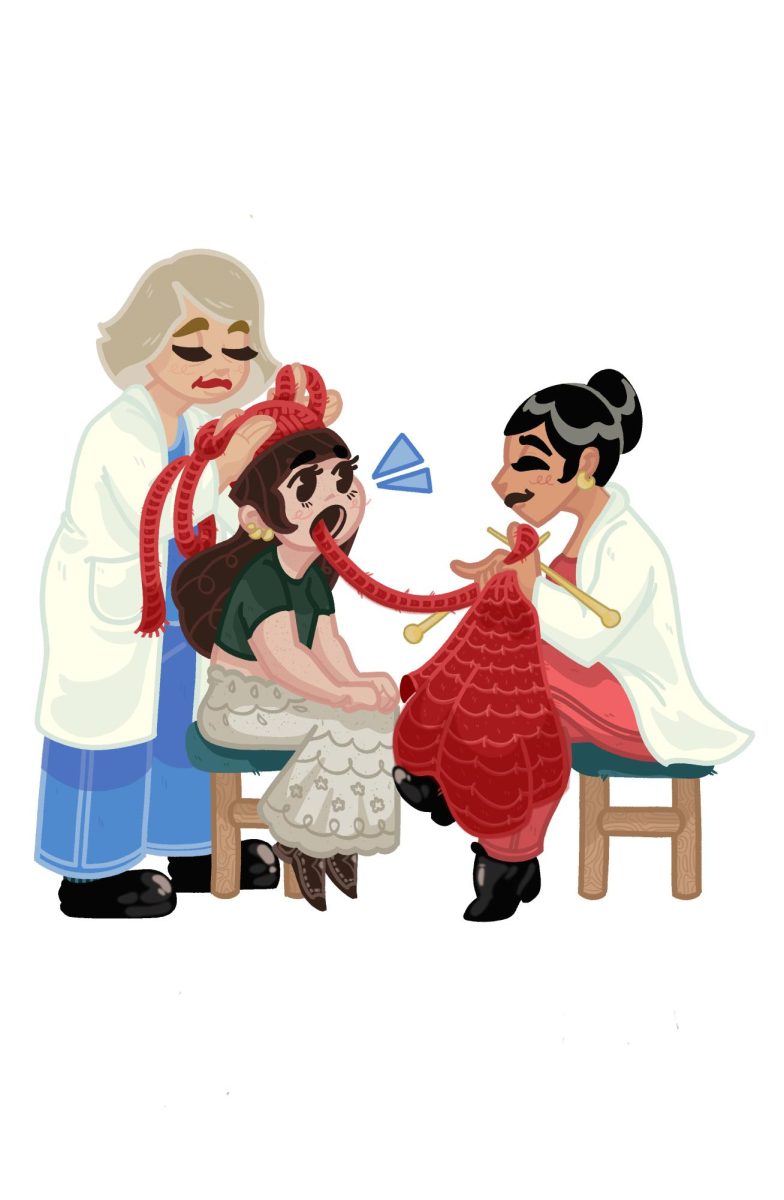*This is the third article published through the column “Hay que hablar de México;” a column on regional Mexican music written by reporter Evelyn Salazar.*
Music is an international language that has no boundaries and no rules since anyone who enjoys music can perform it as well. This is true no matter your ethnicity or genre of music. This was the case for a young girl from Spain who later became one of the greatest singers in regional Mexican music history.
Born in Madrid, Spain as Maria de los Angeles de las Heras Ortiz, Rocio Durcal was an actress and then later became a singer. When she first started her career, she starred in the film “Marianela,” which led to seven other movies that she participated in.
But the movie that got her to show not just her ability to act, but that she had a great voice as well, was the film “Cancion de Juventud.” The movie title, accompanied by her single in the movie, was what helped her raise to fame in other countries.
Around that time, in Mexico, Durcal’s name started to become recognized. She later made the transition to singing mariachi music.
Durcal’s voice captivated the public, and, even though she was not a native person of Mexico, was welcomed with open arms into the industry. Her background was almost completely ignored as the main thing the Mexican public saw in her was her talent.
But knowing how the music industry was in the late 1970s, which was the start of her career, people could’ve heavily criticized her on why she chose mariachi music, as it is the hardest genre of regional Mexican music to create a name in.
This was the last of her worries, because since she already had started her career, during the time she was getting into mariachi, she got to work with some of the best songwriters and producers who also became legends like herself.
One of her first mariachi albums entitled “Canta A Juan Volumen 1” became a hit. It included one of her very first hits called “Fue un Placer Concerte,” written by Juan Gabriel.
After this album, many of the songs she sang became hits, which solidified her a top spot in regional Mexican music. With that being said, she proved many people wrong. A woman, let alone a woman who isn’t Mexican, can make it in the industry.
I feel like everybody wants to put people in categories based on their differences, but when it comes to a profession, it shouldn’t matter.
Durcal is a great example of how music is a universal experience that anyone can be successful in, even in an industry that wasn’t necessarily made for someone with her background. The public ultimately decides what they like and don’t like.
Throughout Durcal’s long career to becoming a legend in the regional Mexican music scene, she had many hits that have now become nostalgic when listening to them.
She sold millions of records entering this era and was heard throughout Mexico, Spain, and all of Latin America. She even continues to sell many records with new generations hearing her, thanks to the internet.
Without her influence, many women that are in the industry now wouldn’t be where they are. She was a pioneer for women in the industry. For example, Jenni Rivera and Yuridia are just a couple singers among many who have done covers of Durcal’s songs such as “Como tu Mujer” and “Ya Te Olvide.”
With all this being said, I truly think that people are too quick to judge a book by its cover when it comes to someone doing something different in any industry. In this case, her cultural background made her seem “different.”
She spoke Spanish and sang in Spanish, but this still wasn’t enough for people to understand why she chose the genre she did.
People should view this very differently because, the way I see it, she is respected and loved in Mexican culture. She loved the music so much that that’s the style she stuck with for a long time.
Music is tradition and it’s great that it’s continuing with others. As for us listeners, we are only getting more to hear and to appreciate.









Stephen Morris • Jul 10, 2024 at 3:31 pm
She is a legend-great article!